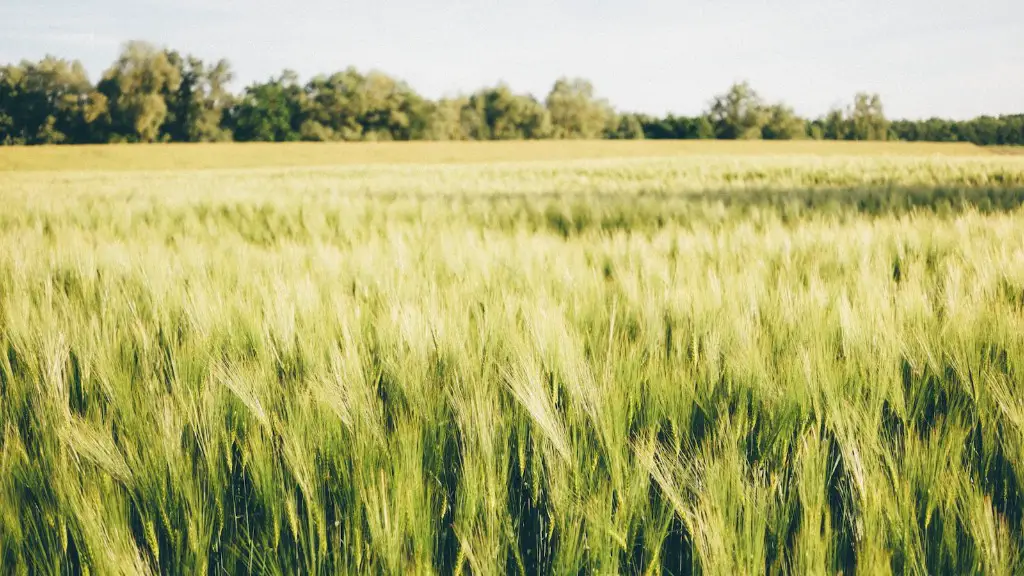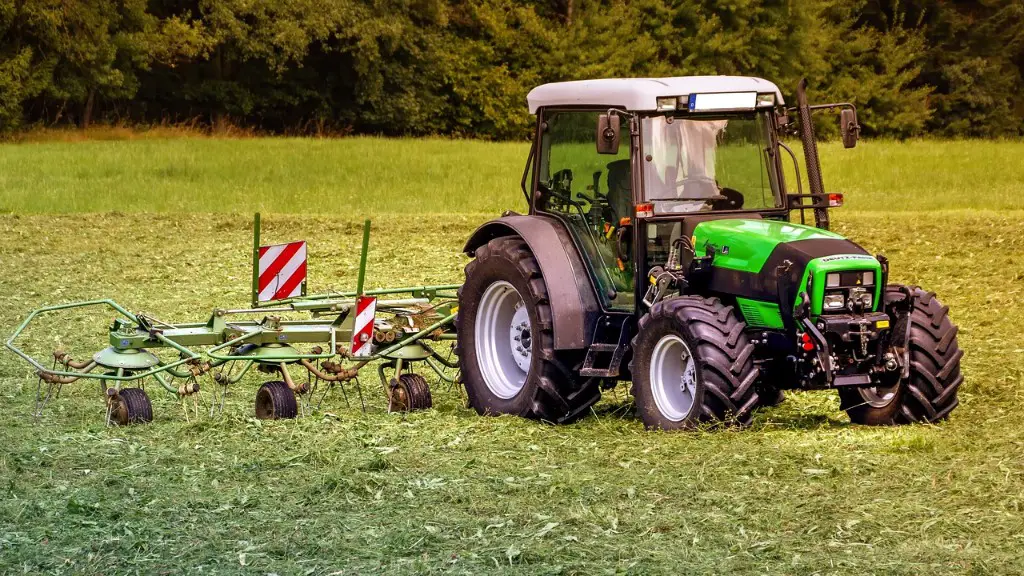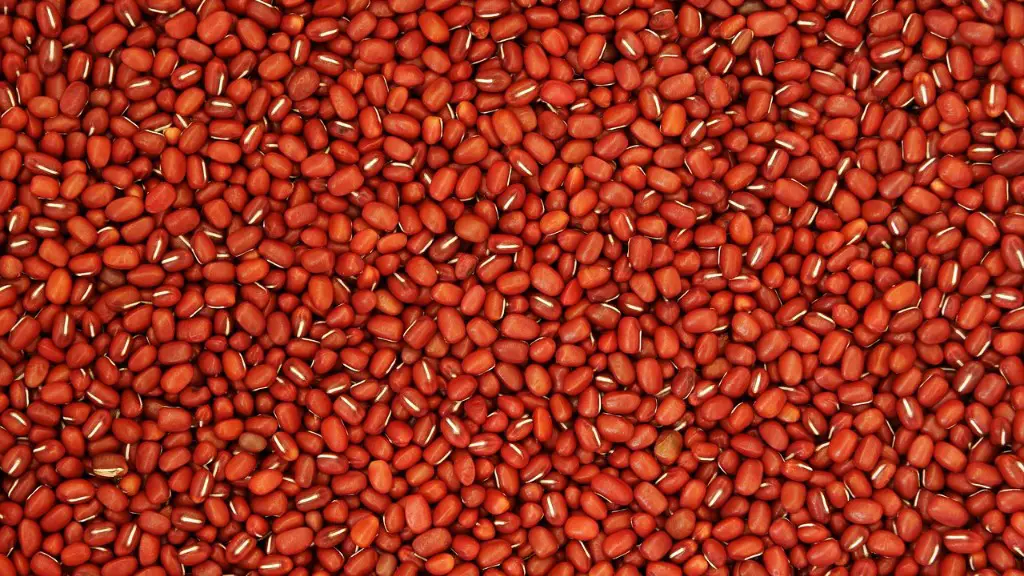The benefits of organic agriculture are many and varied. Some of the most commonly cited benefits include improved soil health, increased biodiversity, and reduced reliance on synthetic pesticides and fertilizers. Additionally, organic agriculture can offer economic benefits to farmers and rural communities, as well as provide consumers with access to fresh, healthy, and sustainably produced food.
Organic agriculture has many benefits for the environment, farmers, and consumers.
Some of the environmental benefits include improved soil health, reduced water pollution, and reduced fossil fuel use. Organic agriculture also tends to promote biodiversity.
Farmers who practice organic agriculture often see benefits such as reduced input costs, improved soil fertility, and increased market demand for their products.
Consumers of organic products may enjoy health benefits such as reduced exposure to pesticides and other harmful chemicals. Additionally, organic products are often perceived to be higher quality and more flavorful than conventionally-grown products.
What are the benefits of organic?
Organic produce may have more of certain antioxidants and types of flavonoids, which have antioxidant properties. Omega-3 fatty acids are also found in higher levels in organic produce. This is due to the feeding requirements for organic farm animals (livestock), which usually include feeding them grass and alfalfa.
Organic farming is a form of agriculture that relies on naturally occurring processes, rather than the use of synthetic inputs, such as chemicals and genetically modified organisms.
Organic farming has a number of benefits over conventional farming practices. These benefits include being more environmentally friendly, promoting sustainable development, producing healthy and tasty food, and being less expensive.
Organic farming is also a source of employment for many people. In fact, the organic farming industry is one of the fastest growing industries in the world.
What are 3 benefits of organic farming over conventional farming
Organic farming is a more sustainable and environmentally friendly option than conventional agriculture. It has a smaller carbon footprint and helps to conserve and build soil health. It also replenishes natural ecosystems, which results in cleaner water and air. Plus, organic farming does not use toxic pesticides, which can be harmful to human health.
Organic farming is a type of agriculture that focuses on producing food without the use of synthetic pesticides, fertilizers, or other chemicals. Farmers who practice organic farming use natural methods to fertilize their crops and control pests.
Organic farming tends to be better for the environment than conventional farming practices. Organic farmers use fewer synthetic pesticides, which can pollute the air, water, and soil. They also conserve water and reduce soil erosion. In addition, organic farming can increase soil fertility and use less energy.
Farming without synthetic pesticides is also better for nearby birds and animals as well as people who live close to farms. Pesticides can harm birds, animals, and people if they are exposed to them. Therefore, organic farming is a more sustainable and environmentally friendly way of producing food.
Why is organic better for the environment?
Organic farming is definitely better for the environment. One of the main reasons why is because organic farming practices involve less pollution. This means that there is less soil erosion and less energy used, which is great for the planet. Additionally, eliminating the use of pesticides in farming also benefits nearby birds and animals, as well as people who live close to farms. Not having to worry about harmful pesticides in the air or in the water is a huge relief, and it makes organic farming a much safer and healthier option overall.
Organic farming systems have many advantages over conventional farming systems. They are more resilient to drought, they earn greater profits for farmers, and they leach no toxic chemicals into waterways. They also use less energy, making them more sustainable.
What are 4 advantages of organic sustainable agriculture?
Sustainable agriculture has many advantages that make it a superior choice to traditional farming methods. For one, sustainable agriculture reduces costs by using fewer inputs and resources. This in turn helps to control air and water pollution and soil erosion. Additionally, sustainable agriculture promotes biodiversity and social equality.
Organic farming is a type of agriculture that relies on natural processes, rather than the use of artificial chemicals. Proponents of organic farming say that it is better for the environment and for human health than conventional farming. Critics say that organic farming is less productive, and that it can be more expensive for consumers.
How is organic farming better for farmers
Organic farmers and food producers take a sustainable and environmentally friendly approach to growing and producing food. They avoid using synthetic chemicals, pesticides and artificial fertilisers, and instead focus on using natural methods to grow their crops. This results in food that is not only healthier for humans, but also safer for the environment. Animal welfare is also an important consideration for organic farmers, as they strive to provide their animals with the best possible conditions.
Organic farming is a method of agriculture where the farmers do not use synthetic fertilizers or pesticides and instead rely on more natural means to improve crop yields. The principal methods of organic farming include crop rotation, green manures and compost, biological pest control, and mechanical cultivation. Crop rotation is a method where different crops are planted in a field in sequential years. This helps to improve soil fertility and prevent the build-up of pests and diseases. Green manures are crops that are planted specifically to improve soil health, while compost is decayed organic matter that can be used as a soil amendment. Biological pest control is the use of beneficial organisms to control pests, while mechanical cultivation is the use of physical methods to remove weeds and control pests.
Why organic farming is better for the land?
Organic farming is not only a healthier option for the environment, but it also produces healthier results. The soil is able to act as a sponge and absorb and retain water, which helps to prevent water runoff and soil erosion. The healthier soil also helps to produce healthier crops, by providing the plants with the nutrients they need to grow.
Organic agriculture is a sustainable way of producing food that reduces our reliance on non-renewable energy sources. By using agrochemicals, we can decrease the amount of fossil fuels needed to produce food. Additionally, organic agriculture helps to sequester carbon in the soil, which reduces the greenhouse effect and helps to mitigate global warming.
Is organic farming really better
Organic food production is a sustainable way of producing food without the use of chemical pesticides. Organic systems have been shown to be more resilient to drought, use less energy, and release fewer carbon emissions than conventional farming methods. Organic food production is a more sustainable way of producing food that is better for the environment and our health.
Organic farming is a form of agriculture that relies on naturally occurring substances, rather than on synthetic pesticides and fertilizers. Because of this, organic farming generally has a lower carbon footprint than conventional farming. This is because the production of synthetic pesticides and fertilizers is energy intensive, and organic farming does not use these products.
What is the strength of organic farming?
Organic farming is a type of agriculture that focuses on producing food without the use of chemical pesticides, herbicides, or fertilizers. Instead, organic farmers rely on natural methods to keep pests and weeds at bay, such as crop rotation and Cover Crops.
Organic farming has a number of benefits: it helps preserve the environment by devoiding of chemicals, it enhances production and productivity of the natural system, and it results in nutrional food. In addition, organic farming is often more sustainable than conventional farming, as it reduces the reliance on fossil fuels and synthetic inputs.
1. Agriculture is the main source of raw materials for many industries.
2. Agriculture is important to international trade.
3. Agriculture plays a big role in a nation’s revenue.
4. Agriculture provides employment.
5. Agriculture is crucial to a country’s development.
6. Agriculture can help heal the environment.
7. Agriculture goes hand-in-hand with war.
8. Agriculture is a big part of the economy.
9. Agriculture is necessary for food security.
10. Agriculture is important to society.
Conclusion
Organic agriculture has a number of benefits, including improved soil health, reduced chemical use, and improved food quality.
Organic agriculture has many benefits, including being better for the environment, producing healthier food, and supporting local farmers.





